
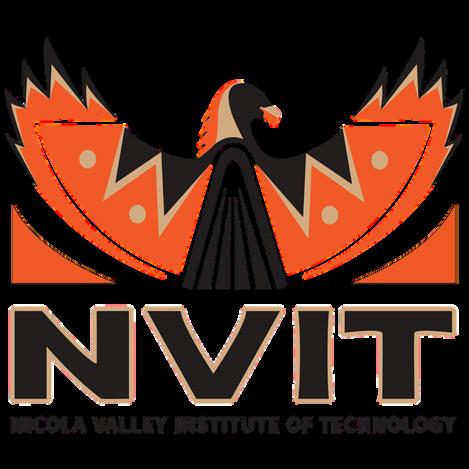



WelcomeRemarks
NVITValues
CommonlyUsedTerms
ImportantDatesandDeadlines
TECHSERVICESGUIDE
Part1:Identity&OnCampusComputing Passwords CampusComputers&WiFi
Part2:Apps&OnlineServices
Moodle Grammarly Self-Service Office365,Teams,Outlook&Email
SELF-SERVICEGUIDE
Part1:Account&FinancialManagement
AccessingSelf-Service
AccessingFinancialInformation AccessTaxInformation(T2202,T4,T4A)
UpdatingSINNumber
UpdatingEmergencyContact
Part2:AcademicManagement Plan,Search,andRegisterforCourseSections
SearchtheCourseCatalogs
ViewtheProgressofyourCredential
RequestanAcademicPlanReview
ViewyourGrades
ApplyforGraduation
ViewandPrintUnofficialTranscripts
ViewPlacementAssessments StudentOpportunities
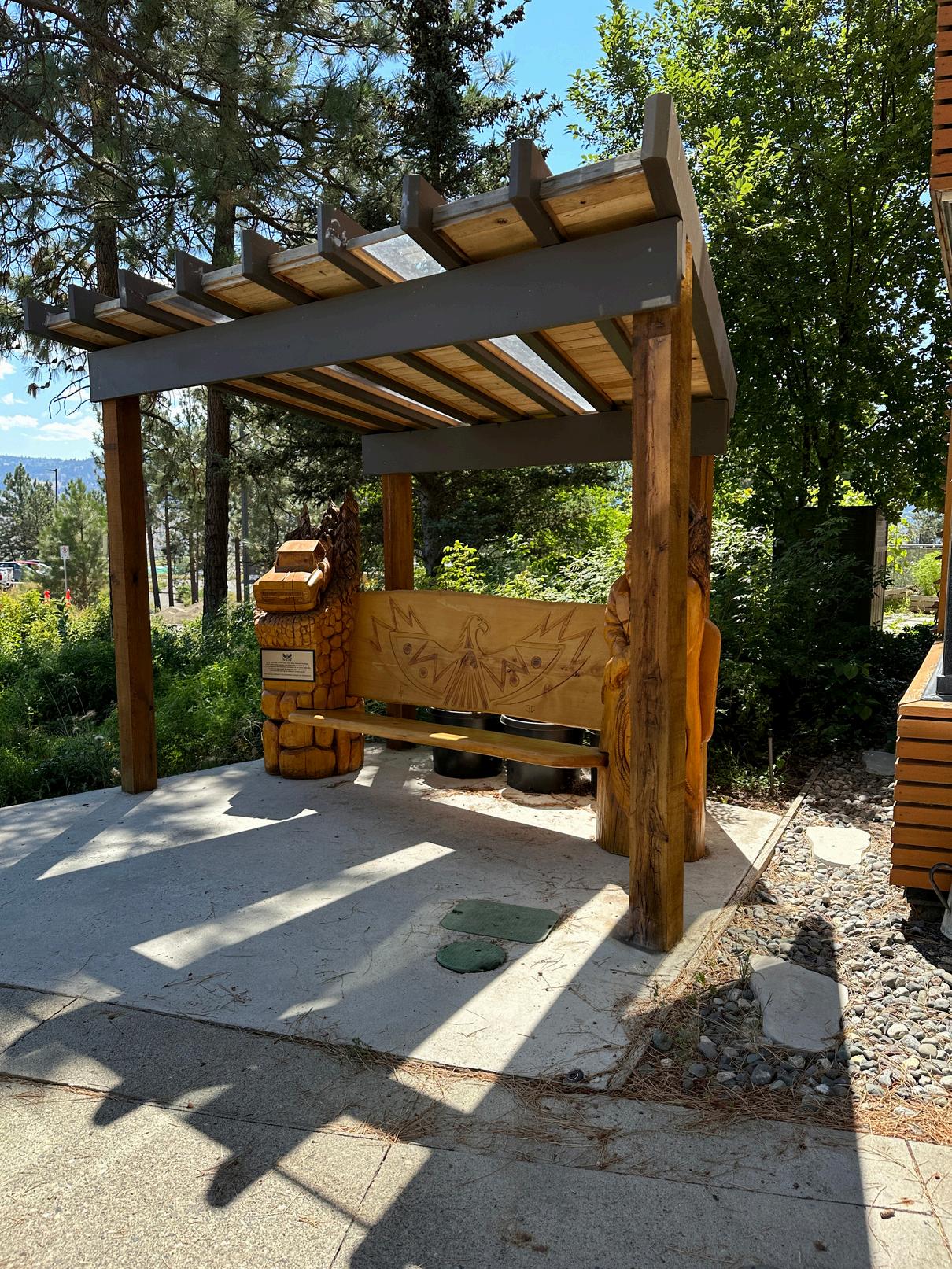
henłeʔkʷ ~ way’
Welcome to Nicola Valley BC’s Indigenous PublicPos
Founded in 1983 by the fiv NVIT was created as a pla in discovering their passio program, NVIT now serves representing nearly 70% o campuses: our main one i these campuses, NVIT rea Education, providing an a

All of us have an inner de drives us to enroll in post-secondary to “up” our skills At NVIT, we understand this inner drive and want you to know that we understand you and we want to help you, help your people!
With this in mind, NVIT is learner-centered, community-grounded, and culturally-inspired. Our strength lies in being an Indigenous institution, honouring the vision of our five founding bands. As BC’s Indigenous public post-secondary institute, we deliver programs enriched with Indigenous knowledge, and you will learn from highly qualified and passionate faculty In addition, our staff are committed to supporting you throughout your educational journey to ensure your NVIT experience is successful
Whether you are a new student or a returning student, I would like to welcome you to NVIT and trust that your time with us creates positive memories that last a lifetime. I encourage you to get to know our Elder’s Council, your fellow students, and each other. We are excited to welcome you to our school and to become part of the NVIT family.
Once again, thank you for choosing NVIT, and we hope you experience the NVIT difference.

John Chenoweth, PhD VP, Academic
yehełcI ~ xsłcawt
Our spirit, essence, emotions, and intelligence are good
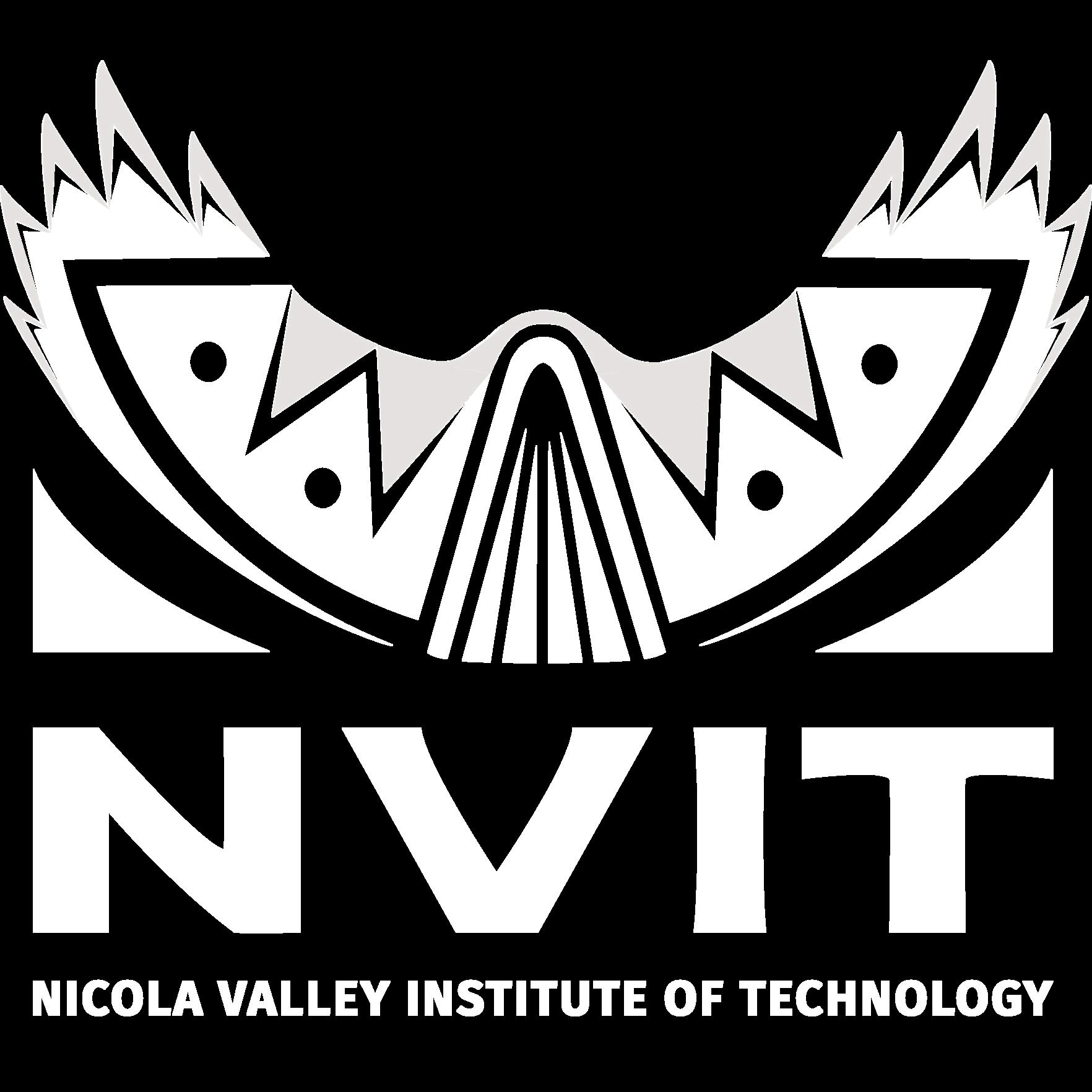
sƛəqméyt ~ nakʷúlaʔmnt
We commit ourselves to sharing our traditional ways.

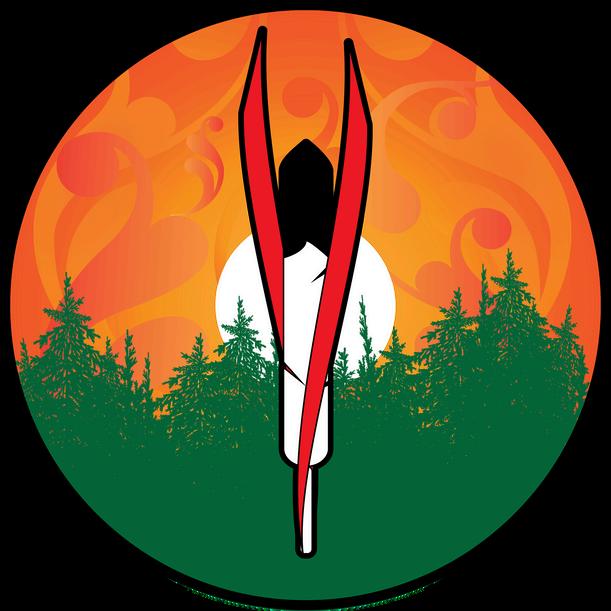
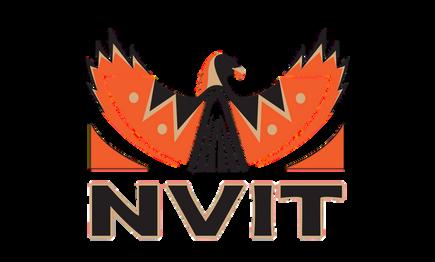

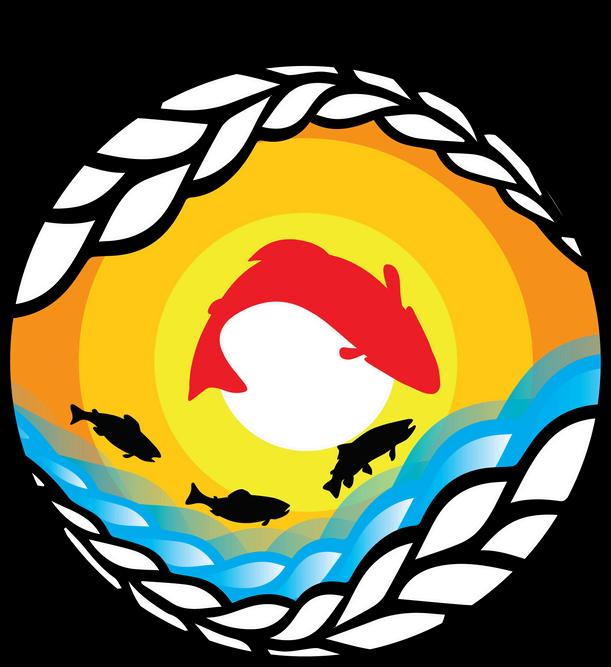
The period of formal instruction For NVIT, usually early September through early August An academic year is divided into Terms - Fall, Spring, and Summer
A cash award to help students pay for their university education. Awarded on the basis of financial need and academic achievement.
When researching potential careers, students can map out many paths that a career field can offer; this is separate from the Education Path that leads to these career opportunities. Completing a diploma or degree in a specific field of study (eg. Computing science) is just the starting point. Students need to understand that there will be multiple paths they can follow in any career once they start work Understanding career path options can help students make choices on courses and other learning experiences while completing their post-secondary program.
A qualification awarded upon successful completion of a university program which is usually one year in length.
A post-secondary institution that provides mainly an undergraduate education with the power to grant degrees College can also be a division of a university e.g. College of Business.
College or university program including both academic credit and formal workplace experience. In-school learning usually alternates with paid program-related employment in the public or private sector
Regularly scheduled class sessions of one to five hours (or more) per week during the term. A degree program is made up of a specified number of required and elective courses and varies from institution to institution.
The units used to record the completion of courses (with passing grades) required to complete the degree are called credits. The catalog will define the amounts and kinds of credits that are required for the university’s degrees and will state the value of each course offered in terms of “credit hours”.
Defined academic program plan for a course, program, major, specialization, or other academic designation The term curriculum may be used to describe learning outcomes, course descriptions and content, learning activities, teaching and learning methods, assessment, and evaluation.
A qualification awarded on the basis of one or two years of successful study Usually, it is at less than degree level, but some diplomas are at the graduate level
This word is used to indicate the teaching staff of a university. It is also an academic subdivision of a university that is a larger unit than a department. For example, a faculty of science may include the departments of physics, chemistry, and biology.
This refers to the number of credit hours students take in a year or semester Generally, students are registered for 30 credit hours of courses in one year (working out to 5 courses per semester) which is considered a 100% course load. Students may be registered for as low as a 60% course load (18 credit hours in one year, working out to 3 courses per semester) and still be considered full-time
A grading system is used to evaluate and report on a student’s achievement in a course or program and is recorded on a student’s permanent record.
The Standard Grade Scale is applied to courses in academic, applied, and developmental programs unless otherwise noted.
GPA or Grade Point Average (cont.)
Program or course that a student is required to complete before being permitted to enroll in a more advanced program or course
A university official who is concerned with keeping academic records, approving course selections, and sometimes, counseling. The registrar’s office is responsible for student admissions, records, and the university timetable.
These are the skills that students should seek to develop through both post-secondary education and other experiential learning opportunities They include written and verbal communication, creative thinking, customer service, time management, and problem-solving Increasingly these are the kinds of attributes that employers seek, and hiring decisions are being influenced by the ability of applicants to demonstrate these skills.
The Trades Training Grade Scale applies to NVIT Foundation and Apprenticeship programs as outlined by the Industry Training Authority (ITA)
A state of mental well-being that enables people to cope with the stresses of life, realize their abilities, learn well and work well, and contribute to their community. It is an integral component of health and well-being that underpins our individual and collective abilities to make decisions, build relationships and shape our world Mental health is a basic human right And it is crucial to personal, community and socio-economic development.
Moodle is a web-based learning environment – an online or virtual classroom. At NVIT, Moodle is used in two ways: for delivery of all content for online courses; and to supplement instruction in classroom-based courses Moodle provides students a place to access course material from instructors, interact with classmates, and work on assignments and activities.
Students registered for less than a 60% course load (less than 18 credit hours in one year) are considered part-time students
To plagiarize is to take ideas or words of another person and pass them off as one's own. Plagiarism applies to any written work, in traditional or electronic format, and orally or verbally presented work. Post-secondary institutions take this form of cheating very seriously, and severe punishments may occur.
An outline of topics covered and the grading structure for an academic course.
The broad term covers methods, systems, and devices which are the result of scientific knowledge being used for practical purposes
A certified copy of a student’s educational record. For postgraduate applications, this will state the date a degree was conferred, indicate the student’s overall grade point average and list the course completed, their value in terms of credits, and the final grade attained in each For students with British qualifications, certified copies of degree or examination certificates along with a syllabus for each course from the college university registrar will suffice.
The money the institution charges for instruction and training (does not include the cost of books
Many BC colleges that offer first and second-year university courses primarily in Arts, Science, Business, and Computing Sciences will admit students into their University Transfer (UT) program. While UT programs do not offer a credential unless students complete the courses that make up an Associate Degree, UT programs are designed to allow students to complete up to 20 courses that will transfer to a university.
Learner-Centred


NOVEMBER
LabourDay-NVITCampusesClosed
OrientationDay
FirstDayofClasses
NominationsopenforEducationCouncil&BoardofGovernors
Lastdaytoaddaclass
Lastdaytodropaclassandreceivea100%tuitionrefund ElectionsOpenforEducationCouncil&BoardofGovernors Tuition/FeeDeadline
Lastdaytodropaclassandreceiveapartialtuitionrefund
NationalDayforTruthandReconciliation-NVITCampuses Closed
PostingofDRAFTSchedulefortheFall2025FinalExams
ThanksgivingDay-NVITCampusesClosed
LastdaytonotifytheRegistrar’sOfficeofconflictsintheFinal ExamSchedule
PostingofOFFICIALSchedulefortheFall2025FinalExams
ReadingBreak RemembranceDay-NVITCampusesClosed
Lastdaytowithdrawfromanindividualclassorchangefrom credittoauditstatus
LastdayofFall2025Classes
Lastdayforfullprogramwithdrawal FinalExaminations
Dec11-17
LastdayNVITisopenuntiltheNewYear NVITCampusesClosedfortheHolidays

VITCampusesClosedfortheHolidays VITCampusesReopen
Firstdayofclasses
Lastdaytoaddaclass
Lastdaytodropaclassandreceivea100%tuitionrefund
Tuition/FeeDeadline
Lastdaytodropaclassandreceiveapartialtuitionrefund
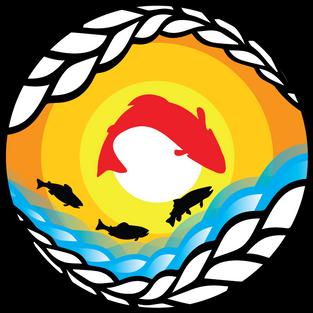
FEBRUARY
Feb6
Feb16
Feb17-20
Feb19
Feb20
MARCH
Mar20
Mar31
APRIL
Apr3
Apr5
Apr6
Apr17
Apr18-24
PostingofDRAFTSchedulefortheSpring2026FinalExams
FamilyDay-NVITCampusesClosed
ReadingBreak
LastdaytonotifytheRegistrar’sOfficeofconflictsintheFinal ExamSchedule
PostingofOFFICIALSchedulefortheSpring2026FinalExams
⬤ ⬤ Lastdaytowithdrawfromanindividualclassorchangefrom credittoauditstatus
Deadlinetoapplyforgraduation
GoodFriday-NVITCampusesClosed
EasterSunday-NVITCampusesClosed
EasterMonday-NVITCampusesClosed
LastdayofSpring2026classes Lastdayforfullprogramwithdrawal FinalExaminations
SUMMERTERM2026
MAY
May4
May18
JUNE
Jun5
Jun12
Jun21
⬤ ⬤ FirstDayofClasses VictoriaDay-NVITCampusesClosed
Jun30 ⬤ ⬤ ⬤
VancouverCampusGraduationCeremony MerrittCampusGraduationCeremony NationalIndigenousPeoplesDay-NVITCampusesClosed DeadlinetoapplyfortheImmediateEntryBursary
JULY
Jul1 ⬤ CanadaDay-NVITCampusesClosed
BCDay-NVITCampusesClosed
LastdayofSummer2026classes
FinalExaminations
Passwords
Campus Computers & WiFi
Moodle Grammarly
NVIT Self-Service Office 365
Teams
Outlook & Email


Your Student ID# is also your Username
Your NVIT email address is your Student ID#/Username followed by ‘@nvit.ca’
NOTE: Moodle and NVIT Self-Serve are the only services that use only your username (e g , n1234567)
Remember your default password and change it immediately after registration Forgotten passwords can be recovered by visiting https://login.microsoftonline.com
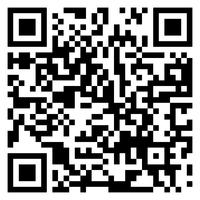
Computer, Technical, IT
Email: helpdesk@nvit.ca
Phone: 250-378-3380 (For emergencies, or unable to email)
When emailing the helpdesk please remember to include: Your name
Your Student ID#
It's helpful to provide your non-NVIT email that you used to register.
A detailed description of the issue including:
For questions on how to use Moodle please contact: Jamie Grismer – jgrismer@nvit ca
Moodle Course Help: Grades, Transcripts, and Registration
For help getting grades, transcripts and other registration type issues please speak to one of our Registration, Administration and Recruitment Officers by emailing registrarsoffice@nvit.ca or calling: 250-378-3304
Available for support Monday to Friday, 8:30am to 4:30pm
What you were doing (or trying to) when the issue occurred
Any error messages you are seeing
The type of device you are using (computer, smartphone, tablet etc).
The web browser you are using.
Any steps you have tried to resolve the issue yourself.
For login errors or password resets we will ask you to confirm information to verify your identity for cybersecurity reasons.
Your username and, especially, your password are the keys that unlock all your NVIT accounts and services; it’s important to keep them safe and secure.
1.1.Usernames
Your StudentID#is also your Username
Your NVITemailaddress is your Student ID#/Username followed by ‘@nvit.ca’
You can find your Student ID# on your registration paperwork, confirmation emails or your student ID card
See 13 Changing Your Password & Recovering Lost Usernames and Student ID’s for instructions on recovering a forgotten username
1.2.Passwords
Keep in mind that there is a default password; it is recommended that you change it to something more unique and memorable immediately
When choosing a password remember these pointers:
Passwords must be 8 or more characters long, and contain at least one Upper and Lowercase letters, and at least one number
Don’t use the same (or similar) password as other websites or services.
Do not use sequential numbering (eg. Password1, Password2, Password3 ) These special characters do not work: ;?:@&=<>\[space] Cannot use previously used passwords Avoid using common, easy-to-guess passwords like:
12345678 Qwertyui Password Guest012 Nothing1 Spring2020 F@ll2021! Iloveyou! P@ssw0rd Secrets!
Princess Rover2018 Kitty2016 AmazonPWD Letmein1
Money2021$ Hockey20 Intel2020 Logitech18 Superman*
Princess Rover2018 Kitty2016 AmazonPWD Letmein1
NOTE: If any of your accounts use similar passwords to the above it’s strongly recommended you change them immediately.
1.3. Changing Your Password
NOTE: To be able to reset a forgotten password you need your recovery information that you used when you first signed in. If you didn’t, please email helpdesk@nvit.ca with your NVIT username, full name, and a personal email address or a cell phone number
There is also a password change kiosk set up on each campus. Outside the IT Office on the Merritt campus; and outside the Student Success Centre in Vancouver.
Go to https://login microsoftonline com
1 Select “Can’t access your account?”
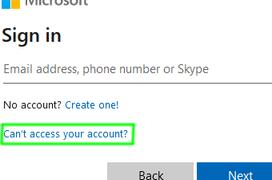
2. When asked “Which type of account do you need help with?” Click on “Work or school account”

A) Enter your NVIT email address in the spot indicated
B) Enter the letters shown in the image C) Press the “Next” button.
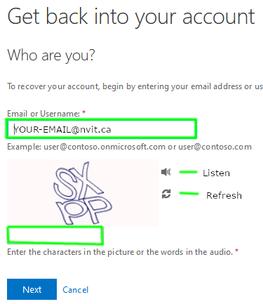
4. Select your verification method & make sure the recovery info is correct; then click the blue button. In this instance we’ll use Email
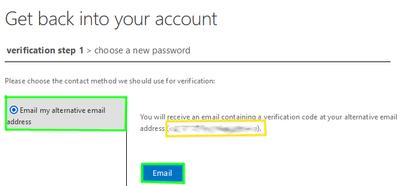
5 You will then be sent a code to whichever method you selected in the last step. Enter the code in the space provided and press “Next”
NOTE: You may need to check junk/spam folders.
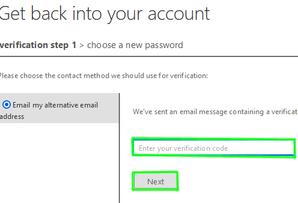
6. Now enter your new password, confirm it, and press “Finish”.
Once your password is changed, it’s a good idea to also test your new login at: Moodle: https://moodle nvit ca NVIT Self-Service https://nvitselfservice.colleagueservices.ca/Student/Account/Login
If you have followed the above steps and are still having password issues, please email helpdesk@nvit.ca with your NVIT username, full name, and a description of the issue and any error messages you see
NVIT uses Multi-Factor Authentication (MFA) to ensure account security.
MFA will use your cell phone and either text you a code or use an app installed on your mobile phone (Android or iOS) to verify your identity when you sign in.
The first time you sign into your Microsoft 365 account, you will be asked to provide some information to use MFA To view or change your MFA settings (including method used): Go to https://myaccount microsoft com/ and sign in with your NVIT email address and password.

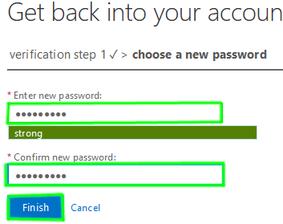
The next screen will give you a link to sign in with your new password
Look for the “Security info” section and click “UPDATE INFO”. You should see this screen, in which you can update your information. To change the method used look for this line and select “Change”:
When choosing a password remember to follow the rules on page 11
NOTE: There can be up to a 15min delay after changing your password before it gets updated across all services.
You can now select a different method from multiple methods (there is also an app).
If you have troubles with MFA, please contact helpdesk@nvit.ca or 250-378-3380

NOTE: To see if your computer meets the above criteria, you can view your computer specs by pressing the ‘Start’ button and typing “System Information”
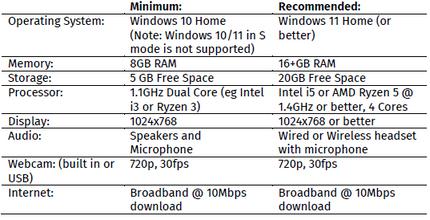
InternetSpeed: High-speed broadband access (LAN, Cable, DSL) with a minimum download speed of 10Mbps is strongly recommended.
The performance and reliability of Internet providers can vary greatly due to several conditions We have reports of many students having problems with wireless providers, and recommend a physical connection provider if possible You can test your speed by using https://wwwspeedtestnet/ or a comparable service
HomeConnection:For reliability/performance reasons, we recommend using a wired connection to your router as opposed to WiFi. Also be aware that your internet speeds may be impacted by others using the same connection (ie streaming video, online gaming etc).
Audio: Use of a headset with a microphone is highly recommended If you have built-in speakers and a microphone, they will work, but your audio quality will suffer
Operating System: While you can use an Apple computer (with one of the last 3 versions of macOS), you may encounter difficulties installing and/or using Microsoft applications (Teams, Outlook, etc), so the online Microsoft tools are recommended
As a student there are computers available for use, as well as laptops available for short-term sign out. You are welcome to use the campus Wi-Fi.
There are computers available for use or sign out on both campuses from the library To login to any of these computers use your NVIT email address (n1234567@nvit ca) and password
As a student you are welcome to connect your personal devices to the campus guest Wi-Fi.
For Laptops or mobile phones that do not support QR Codes: Wi-Fi Network ID: NvitGuestWifi
Password: 40LearnerCentered!

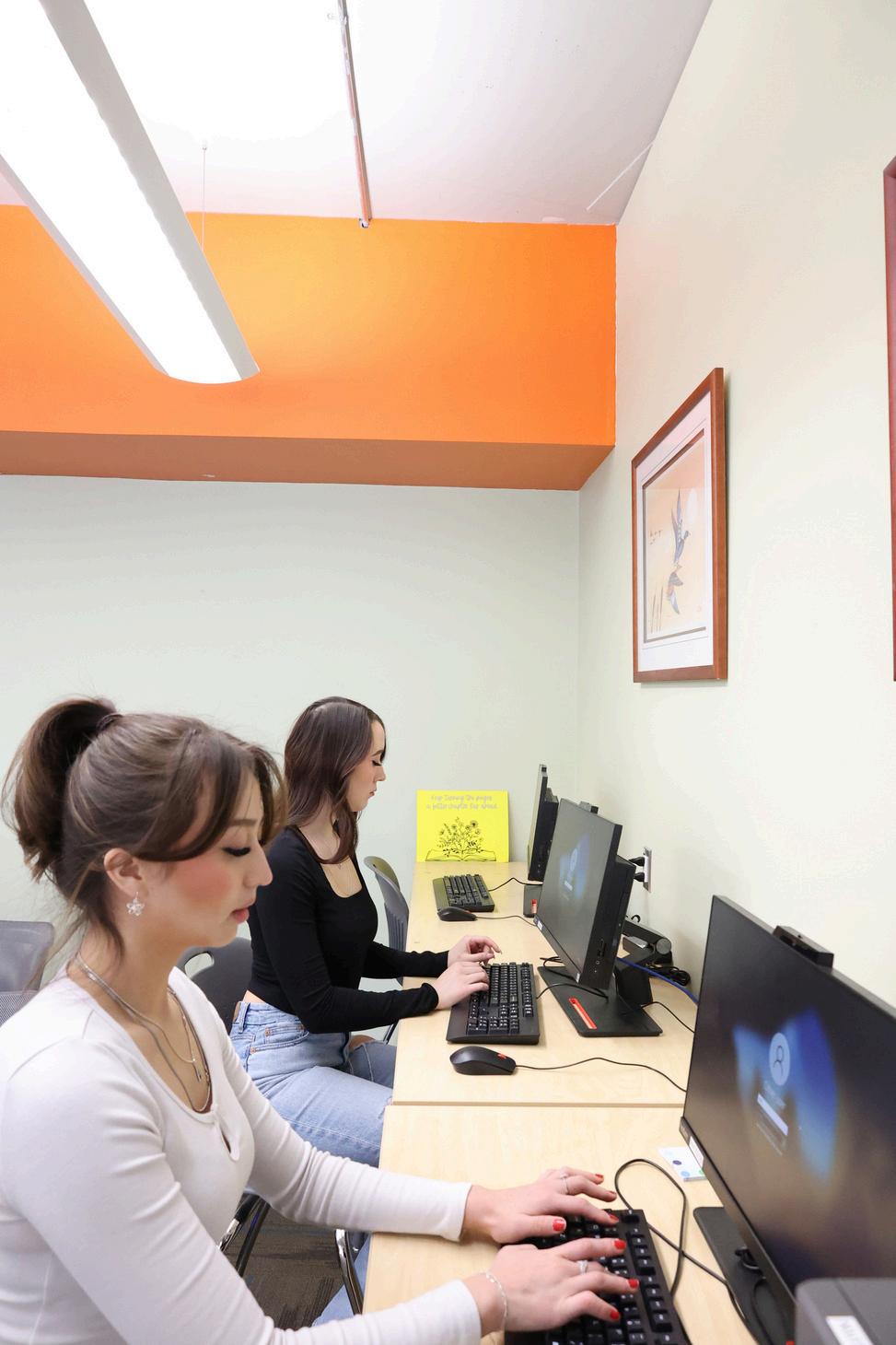
QR
Scan the QR code with your camera app and a little pop up will show you saying “NvitGuestWifi” click on it and it will automatically join you to the network.
The organization provides this service as is and may remove your access if necessary to protect the organization and ensure the best experience for students.
To help with your studies, NVIT uses a number of apps and online services Some will help you communicate with instructors and fellow students; others will help you keep track of your courses and assignments
Since every course is different, and each instructor will use these tools differently, this guide won’t get in-depth on using these tools; instead, it will help you access and get started with these tools You will also find links to additional training and guides for some tools and services
Moodle is a Learning Management System (LMS) that some courses will use In general, if your course uses Moodle, your instructor will generally give you an overview of how they would like you to use it.
Moodle can be accessed by visiting: https://moodle.nvit.ca/
NOTE: Moodle is one of the few places where you sign in with only your username/student ID# (eg n1234567)
The Moodle homepage has several resources you may find useful, including:
A link to install the app to your mobile device.
Moodle quick start and training
A practice Moodle course to help you learn the system
Links to the library databases
Many other links and resources you may find beneficial.
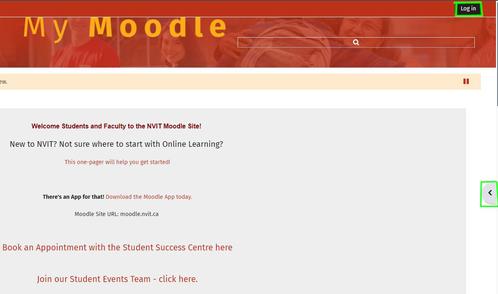
To sign in and access your courses, click either the arrow on the right side of the screen, or the Login button in the top right corner.
Then enter your username (student ID #) and password.
As a student, you are also free to use the Educational version of Grammarly to create an account:
1. Visit https://invite.grammarly.com/RZZ5dnkw
2 Click the “I don’t have an account” link

3 Enter your NVIT username (without the @nvit ca) where it asks for your “Email”
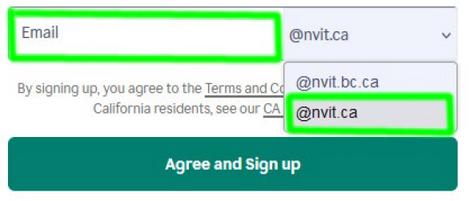
4. From the drop-down menu, select “@nvit.ca”
5 Click “Agree and Sign up” If prompted, complete the “I am not a robot” screen.
6. Check your NVIT email address (https://office.com)
7 Look for an email from Grammarly that contains a 6-digit code Enter it into the “Verify your email” screen
8. Next, click “Join your school”
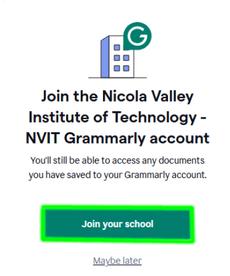
9. You will now be given the opportunity to download Grammarly.
NVIT has a Self-Service portal located at: nvit-selfservice.colleagueservices.ca/Student/Account/Login
To sign in, use your username and password.
NOTE: NVIT Self-Service is one of the few places where you sign in with only your username/student ID# (eg n1234567)

From here you can do things like: Register for courses View your grades Access your tax forms
As a student of NVIT you have access to the Microsoft Office Suite, which includes Outlook (for email), Teams (communications), Word, Excel and several other apps.




Word (6.6) Used for typing and editing documents
PowerPoint (6.6) For viewing and creating slideshows
OneDrive (6 5) Cloud-based file storage
OneNote Digital cloudenabled notebook

Excel (6.6) Creating and editing spreadsheets

Outlook (6.3) App for accessing email

Teams (6 4) Communications and Collaboration
NOTE: If you have a personal, work or other Microsoft account in use on your device (unless you are comfortable handling multiple accounts) make sure you have fully signed out of that account before signing into your NVIT account.
Each course is different and may use the above apps differently Your instructors will let you know which tools they would like you to use
For some quick start and tutorial guides and videos for Office visit: https://support.microsoft.com/en-us/training. Pick the app you wish to learn more about, and then scroll down to find the version you are using (eg. On the web, Windows, MacOS...)

There are multiple ways to access and use the Office apps, but they all follow the same sign-in process
NOTE: If this is your first time signing in, you will also be prompted to provide some additional information for verification and use with Multi-Factor Authentication (MFA). You must complete this step.
You can use either a personal email address or a cell phone for text (for MFA purposes, we recommend using a cellphone and text messaging)
For any method, enter the additional contact information, and enter the code when it's provided
To Sign in: Open Office (Either online or using one of the apps): Click ‘Sign In’. If you have just installed Office, you may be prompted to agree to the terms of use before you can sign in.
NOTE: If you see another account other than your NVIT account, select “Sign in with a different account” before proceeding
These Apps can be accessed online using a web browser on any computer; installed to your personal computer/mobile device; or from any campus computer.
Use your NVIT email and password {n1234567@nvit.ca} to sign into your email and other Microsoft apps.
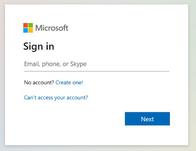
Enter your NVIT email address and press ‘Next’

Then enter your password and click ‘Sign In’
If you have your own Windows computer and prefer to install Office directly onto your computer, you are licensed to do so for as long as you are a student of NVIT.
You can find it in the Microsoft Store, or if you prefer you can do a direct install: Start off by signing into Office Online (https://office.com).
Once signed in, look to the top left corner of the dashboard and click the ‘Install Office’ button

NOTE: If you have a personal Microsoft account (eg Hotmail com, Outlook com) or a personal Office license you may experience conflicts between accounts In this instance we suggest using a different web browser to access your NVIT account.
And follow the onscreen prompts. Once installed, you’ll be asked to agree to some terms of use, and then asked to sign in
During your first sign into Office or Teams, you will see this pop-up asking you to “Stay signed in to all your apps”.
We recommend you UNCHECK the checkbox and click “No, sign in to this app only”
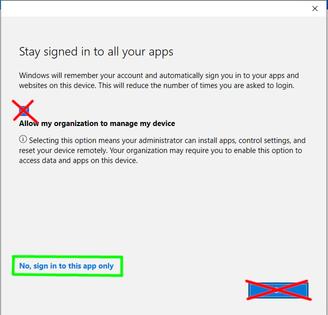
If you click ‘OK’ you will be registering your computer with NVIT’s device management system
For more information on what registering does visit: https://businesstechplanet.com/allow-my-organization-tomanage-my-device-what-it-means
If you previously clicked ‘OK’ here are some instructions for undoing it: https://businesstechplanet com/allow-myorganization-to-manage-my-device-what-it-means/#unenroll
You can access the Office apps from any computer using a current web browser (Chrome, Edge, Firefox, Safari etc). This can be great for shared/family computers, computers with limited performance, restricted access or Linux As an added bonus; the cloud apps will also default to auto-saving to OneDrive (more on that later) so your work is also accessible from anywhere.
To use Office online open a web browser and visit https://office.com
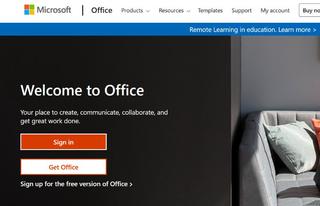
Click Sign In and follow the steps from the previous section. Once signed in you will see your dashboard, and all the Office apps along the ribbon along the left side of the screen.
6.2.3 Office for Macs & Mobile
(Not supported by IT)
There are Office Apps available for Android phones and tablets; Apple iPads, iPhones, and Mac computers; Chromebooks, as well as Windows tablets, hybrids or Windows ‘S’ devices
On any of those devices open the app store for your device. (Google Play Store, Apple App Store, Microsoft Store, etc) and search for “Microsoft Office”
NOTE: The IT department only offers support for the Windows 10/11 and web versions of Office
6.3.1.
All NVIT students, faculty and staff are provided an email address to use for all NVIT related uses like: Communicating with fellow students or your instructors Submitting assignments (course dependent) Signing up for additional online services your course may use (eg Grammarly)
NOTE: For security and privacy reasons, forwarding emails from your NVIT account to a personal or external account has been disabled.
Outlook is the Office App for sending and receiving emails. It also has a calendar and contact management so you can keep track of people you communicate with and your course schedules
Like other parts of Office you can access Outlook online, or installed on your device.
NOTE: Unless you are using your personal device, you should use the Outlook online app (preferably while using a private browsing mode) This will help keep your account and data more secure
Outlook has been around for a long time and functions much like most other long-running apps and email services; so its basic functionality should be familiar to you; however, if you’d like a crash course or to learn more about Outlook, visit https://support.microsoft.com/en-us/training select Outlook, and scroll down to find the version you are using
6.4.
Teams is a communications and collaboration tool Depending on your course, you may be able to participate in class from home using Teams. You can also chat with your instructors and classmates; have video conferences, work on team projects and more.
To install Teams on your personal device you can download the installer from: https://www.microsoft.com/en-ca/microsoftteams/download-app (Make sure to select the “Teams for work or school” version.)
Tools like Teams are fairly new to the app landscape Unlike apps like Word or Outlook which were designed around fulfilling a specific purpose (documents and email), collaborations tools like Teams were designed to be an all-inone replacement of several tools.
OneDrive is a cloud-based (online) storage service. It allows you to save your files to a remote internet connected system, giving you access to them from anywhere. As an added benefit, when used with other Office Apps Online like Word; it allows you to save and resume your assignments from any computer –especially useful if you use multiple or shared computers or have a tendency to lose USB drives. You can also create shared libraries; making it easier to collaborate with classmates on projects.
OneDrive can be accessed through office com, and it runs automatically if using other apps from office com It’s also where any files you upload to Teams and your OneNote notebooks are saved.
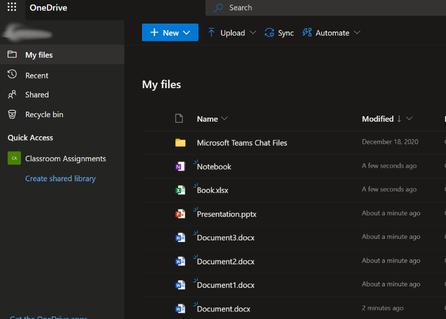
There is also a version for computers; but it has more features and does a lot beyond the scope of this document.
As with the other Office Apps; there is more video tutorials for using OneDrive at: visit https://support microsoft com/enus/training under the OneDrive section





Similar to a social media feed; provides a summary of everything happening in your teams
This is where you will find any “Team” you have been invited to. Most likely your courses and clubs.
Keep an eye out for this icon It means there are more options, settings or controls
Essentially this is the Instant Messaging part of Teams.
Use the calendar to keep track of classes, due dates and meetings.
These are the staple Office Apps, you’ve probably used them or something similar in the past, some of the oldest computer programs ever made were the basis for these apps. Word is for creating and editing documents, Excel is used for spreadsheets and tables, and PowerPoint is for creating and viewing slideshow presentations
These apps are also available to use online or installed on your computer. There are also mobile versions for these apps, however smaller screen sizes and touch keyboards can make them awkward to use.
If you’re new to these types of apps, or need a refresher course on the current versions, check out: https://support.microsoft.com/en-us/training and click on the app you want to learn more about.
Accessing Self-Service
Accessing Financial Information
Accessing Tax Information
Updating SIN Number
Updating Emergency Contact Plan, Search, and Register for Course Sections
Search the Course Catalogs
View the Progress of your Credential
Request an Academic Plan Review
View your Grades
Apply for Graduation
View and Print Unofficial Transcripts
View Placement Assessments


Access Self-Service using this link: NVIT Self-Service or access the NVIT website at https://nvit.ca and sign into NVIT SelfService by clicking on the Login button and then NVIT SelfService.

Access Self-Service using this link: NVIT Self-Service https://nvitselfservice colleagueservices ca/Student/Account/Login or access the NVIT website at https://nvit ca and sign into NVIT SelfService by clicking on the Self-Service on the top menu bar.
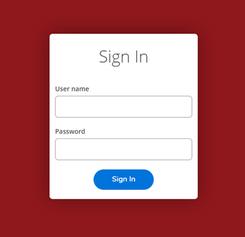
NVIT Self-Service is a hub that allows students to:
Access financial information by semester
Pay tuition and fees (through PayMyTuition)
Access tax information (T2202, T4, T4A)
Update your SIN number
Plan, schedule, and register for course sections
Search the course catalog
View the progress of your credential
Request a Plan Review with an Academic and Financial Planner
Check grades
Apply for graduation
View and print unofficial transcripts
View your placement assessment records
Update Emergency Contacts
Financial Statements and summaries can be accessed through the left side of the page in the “Financial Information” dropdown or via the home page through “Student Finance”.
Drop-down menu:
Home page:



Here you can: Pay tuition and fees by clicking “Make a Payment” under the Paymytuition logo (https://payment paymytuition com/paynow/nvit)
View Account Overview by semester
View Account Activity and generate a PDF to print, save, or share Proof of Enrolment Statements with costs by clicking on the semester, then “View Statement” on the right side of the Account Activity Screen

Tax documents can be accessed through the left side of the page in the “Financial Information” drop-down or via the home page through “Tax Information”
Drop-down menu:
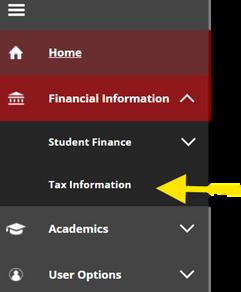
Home page:

Social Insurance Number (SIN) Information can be accessed and updated through the left side of the page in the “Academics” drop-down or via the home page through “Social Insurance Number (SIN) Information”.
SIN Numbers are collected if:
You receive an award, bursary, or scholarship from NVIT (T4A)
You are registered in a program or course(s) that generate a tax credit (T2202)
You are a student worker (T4)
You would like these forms uploaded to your CRA account every February
Drop-down menu:

All relevant tax information documents will be posted annually by the last day of February. Click on the document under the “notation” column to download and print the PDF. Past statements will be available for download. For tax documents to be available on your CRA Online Account, please see directions to input your SIN number below

For assistance and questions about T4s, please contact HR at hr@nvit.ca For assistance and questions about T4As, please contact Finance at ar@nvit.ca For assistance and questions about T2202s, please contact the Registrar’s Office at registrarsoffice@nvit ca
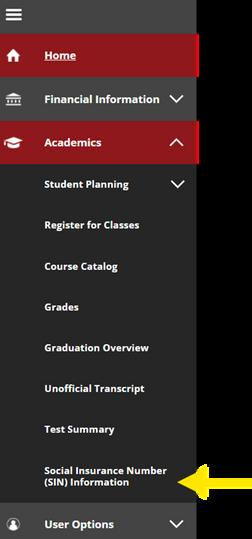


Emergency contacts can be entered and updated through the left side of the page in the “User Options” drop-down, then select “Emergency Information”.
Drop-down menu:
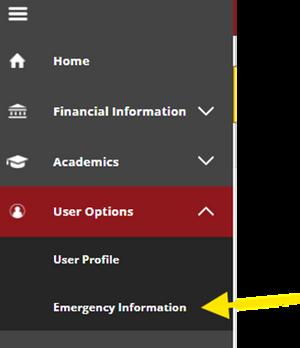
Emergency contacts can be entered and updated through the left side of the page in the “User Options” drop-down, then select “Emergency Information”

Planning, searching, and registering for course sections can be accessed through the left side of the page in the “Academics” dropdown then either “Plan & Schedule” or “Register for Classes” or via the home page through “Student Planning”, then “Plan your Degree and Register for Classes”
Drop-down menu: Home page:




Click the magnifying glass in “Search for Courses” to access NVIT’s current course listings
Course listings can be filtered by:
Subject
Location Term
Days of the Week Time of Day
Instructor
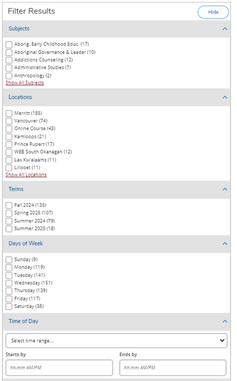
Academic Level Course Level Course Type
Topics (Fixed = courses associated with Merritt, Vancouver, Online; Non-Base Fixed are Community Education courses only) Instruction Type (Not Online)
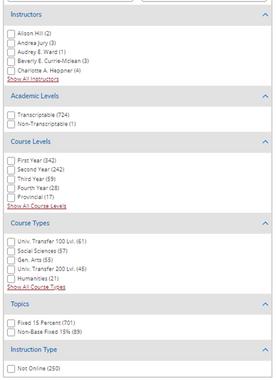
Tip: Filtering by location and term will give you the current course offerings per location. For example, if you are looking for Fall 2024 Online Courses, click on “Online Course” in Location and Fall 2024 in Terms
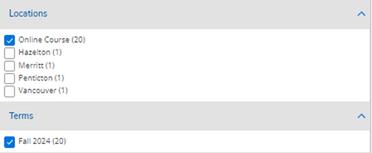
The search results will filter out by your request and reveal a list of available courses and sections
A course is a record created by NVIT with curriculum approved by Education Council. A section is a specific offering with a unique section number, location, start/end date, and start/end times. A course section must be available to be able to process registration.
Not every course will have an available section open for registration within your filtered search
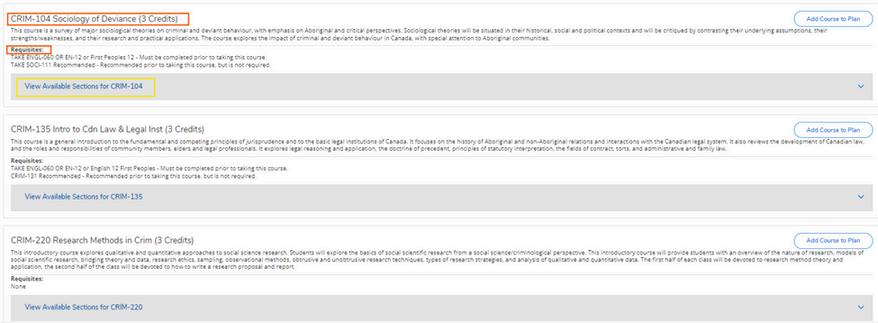
To register for a section, click “View Available Sections for ” This will reveal the available sections along with other course offering details. Please note that the seats available will always be listed first in the Seats Column.
Click “Add Section to Schedule”

The section details will pop up in a new window Please note that if you do not meet the requisite requirements, you will need to seek instructor permission to proceed with registration If you meet the requisite requirements, click on “Add Section”
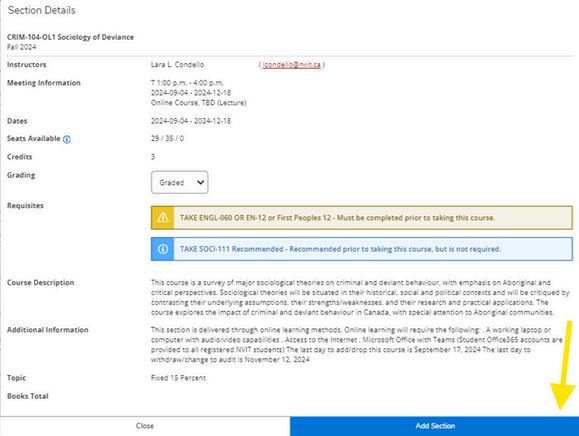
If the section has been successfully added to your schedule, you will see a green pop up in the top right corner under your username:

Registration is not yet complete The final steps are:
On the left side of the page, click on “Back to Plan & Schedule”

If you are satisfied with your schedule, are in the correct term, and ready to process registration, click on “Register Now”. You can add multiple courses to your schedule before you register, or you can register for one course at a time.
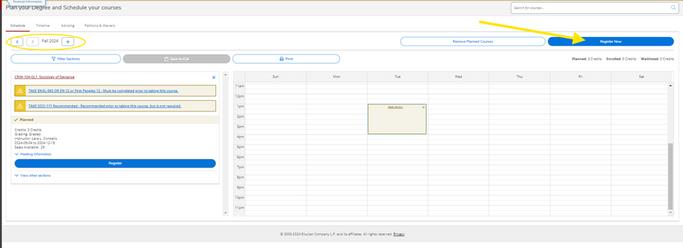
If registration is successful, the course will indicate “Registered” in green, and a “Drop” button will be available for processing a drop up until the deadline (outlined in Important Dates and Deadlines) To print

To print your schedule, click on Financial Information > Student Finance > Account Summary > Choose your Term > View Statement

For assistance with registration, course drops and withdrawals, course planning, and Student Planning navigation please email info@nvit.ca.
In “Student Planning” click on “View Your Progress”. This will give a summary of your active credential, the courses completed, and the courses left to complete, transfer credit, and your program GPA.

You can also select “View a New Program” to see how your current courses would meet the requirements of another NVIT program.
Search the NVIT course catalog by subject or through an advanced search To register, proceed with steps above


The “Advising” tab is where students can send notes directly to an Academic and Financial Planner or click the button on the right to “Request Review” of their proposed semester/program plan. This will go directly an Academic and Financial Planner who will reach out to you via email within 2 business days about your request

Grades can be accessed through the left side of the page in the “Academics” drop-down or via the home page through “Grades”.
Drop-down menu: Home page:
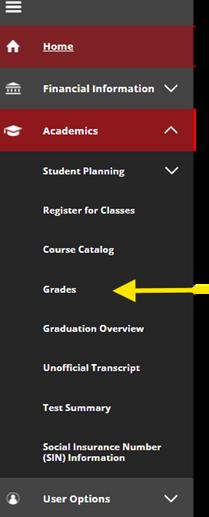


Choose your semester and view your grades You can print directly from this page for your records Only final grades will appear here.

Students who have completed program requirements need to apply for graduation in order to have their graduation status recorded on their student record and receive their credential This graduation status is then listed on the students Official Transcript and acts as an official record of the graduation
Students must apply to graduate online regardless of whether they plan to attend a graduation ceremony. Certificates, Diplomas, and Degrees are issued based on the information provided through the online application.
Annual Application for Graduation and Fee Deadline – March 31
*Browser Recommendation: Firefox or Internet Explorer be accessed through the left side of the page in the “Academics” drop-down or via the home page w”.

Drop-down menu: Home page:


Select “Apply” and fill out the application in full
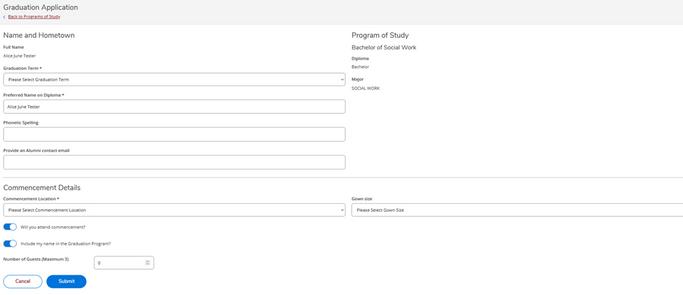
Ensure your information is correct
Viewyourpersonalandprograminformationinyour Self-Serviceprofiletoensureitiscorrectbeforeyou submityourapplicationtograduate
Namechanges:YoumustprovidetheRegistrar's Officewithofficialdocumentationshowinganame change
Addresschanges:Youcanupdateyouraddress throughSelf-Serviceinyourprofile.
A Graduation Fee is applicable if you plan to attend the graduation ceremony in Merritt or Vancouver only If you do not plan to attend graduation in Merritt or Vancouver (please select ‘NO’ for ‘Will You Attend Commencement’), you will receive your credential in the mail after you have completed all of your program requirements
Graduation Fee Deadline: March 31 annually
NOTE: both the RSVP and payment need to be received by this date in order to participate due to gown orders, space, and other considerations. RSVPs will not be considered after this date, and you will receive your credential in the mail once confirmed.
NOTE:Studentswillbeprovidedwithagownfortheceremony;however,studentscanchoosetoweartheirown traditional/ceremonialregaliaYoucanselectthisoptionunderGownSize*GownsizeisbasedonheightWITHSHOES
Onceyouhaveapplied,yourapplicationwillbereviewed,andyouwillreceivealetterand/oremailstatingifyouqualifyfor graduationafteryourfinalgradeshavebeenreceived.
ParticipationintheGraduationCeremonydependsonthefollowing:
AllcourseworkisorwillbecompletedbyJuly31st
Allfeesowing(finance,library,etc.)arepaidinfull
Alltermmarksareinputintothestudentrecordsystem**
**ThosewhohavecoursesinprogressupuntilJuly31stmayparticipateingraduationiftherestoftheirgradesmeettheminimum requirementstograduatefromtheprogram
Unofficial Transcripts can be accessed through the left side of the page in the “Academics” drop-down
Drop-down menu:

Placement Assessment Results (Accuplacer) can be accessed through the left side of the page in the “Academics” dropdown, then select “Test Summary.” They will appear by assessment type and date taken.
Drop-down menu:


Click on “Web Transcript” This will then appear in the downloads in your web browser
Open the document to save, print, or share.

To obtain an Official Transcript, please fill out and submit the NVIT Transcript Request Form.
https://www nvit ca/wpcontent/uploads/2024/09/Official-TranscriptRequest pdf

Watch our Academic and Financial Planners share valuable information and opportunities you should know about for your academic planning: https://youtu.be/2b48M1gICLQ
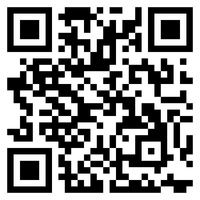
The Board consists of eight or more members appointed by the province of British Columbia and four elected positions that includes two learners, one faculty and one staff member at NVIT NVIT’s President and its Education Council Ch non-voting members of the Board The Board sets vision and values while providing overall direction link with communities. The Board has authorities a responsibilities determined by provincial legislatio
This council is primarily responsible for academic defined in the College and Institute Act Membersh of faculty, support staff, learners and administrato legislated by the College and Institute Act The Edu Council meets on a bi-monthly basis and is suppor committees as well as the Vice President - Academ
The NVIT SEM Committee is a crucial component o the development and sustainability of NVIT At NVI focuses on identifying and implementing relevant and policies focused on learner success while con increasing enrolment numbers and retention level strategic enrolment management approach looks learner cycle, from prospective learner through to SEM begins with an appreciation of the particular e the institute finds itself in, anticipates changes, ad institute’s mission, vision, and goals, and takes a s approach to linking campus-wide services, suppor programs.
The NVIT Student Society is a learner-governed entity that is responsible for allocating student activity fees on behalf of the learner population

*Compensation provided


BC Oil and Gas Commission Scholarship
$1000 x 3
Awarded to three full-time Indigenous students from a BC First Nation (nonstatus/self identifying included). One award to a student attending Merritt, one attending Vancouver and one attending Community Education Students must be enrolled in a minimum 60% course load in any program or field Students must be in good academic standing (3 0 GPA, B average) and demonstrate financial need Students are expected to submit an application and financial need statement.
Deadline: March 15
Canadian Institute of Forestry Forestry Technical Silver Ring Silver Ring
Since 1967, the Canadian Institute of Forestry has presented silver rings to graduating Environmental Resources Technology students from recognized Canadian Forestry programs CIF silver rings are available for purchase to welcome new forestry professionals to unite them at the national level. It is worn on the little finger of the left hand The engraving of the maple leaf seeming to grow towards the tip of the finger symbolizes the growth of professional opportunities. A sliver ring costs $65 for non members and $45 for members plus tax Please see and Academic and Financial Planner to make an order.
Deadline: March 31
Coldwater Indian Band Community Involvement Bursary
$550 x 4
Awarded to four full-time Indigenous students from the Merritt campus who are members of the Coldwater Indian Band. Students must be enrolled in at least 60% course load in any field of study (Developmental Education, Employment Skills Access and Bridging to Trades are excluded). The applicants must demonstrate financial need, a character reference submitted by an instructor, meet their minimum program GPA and submit an essay that describes a commitment to community involvement.
Deadline: March 30
Corix Water Utility Award
$2500x2
Awarded to a full time Indigenous student studying on the Vancouver campus who identifies they are from either the səlilwətaɁɬ təməxʷ (TsleilWaututh), šxʷməθkʷəyəmaɁɬ təməxʷ (Musqueam), Skwxwú7mesh-ulh Temíxw (Squamish), Hul’qumi’num, Tsawwassen, Ləkʷəŋən, or Stó:lō territories Students must also speak to their connection to their community If no applicant from any of the listed areas applies, then applicants from the next closest band/nation geographically will be considered Students must also speak to their connection to their community
Deadline: March 15
FORED BC Bursary
$500
Awarded to all students of self-declared, Aboriginal ancestry from any program at NVIT. Students must demonstrate financial need and obtain high grades Students must also write a short paragraph on how Traditional Ecological Knowledge may be or has been applied to environmental resources management in their territory, community or Band decisionmaking The Awards Adjudication Committee will determine the recipient Deadline: March 15
Helen Meilleur Memorial Library Research Scholarship
$500
Awarded to a full-time student in any program at the Merritt campus who demonstrates strong research skills. Students must submit an essay previously marked by one of their instructors to the NVIT Registrar’s Office. The Library staff will determine the recipient Deadline: March 15
Micheal Gordon Street Memorial Bursary
$1000
Awarded to one (1) full-time student from the Merritt campus, who enrolled in a minimum 80% course load in any field of study (Developmental Education, Employment Skills Access and Bridging to Trades are excluded) The recipients must demonstrate financial need, dedication to their studies, display citizenship qualities and describe their balance between home (including hobbies), work and educational lifestyles. The student must have attained a minimum 3.0 (B) grade point average in their current year of studies
Deadline: March 15
NVIT Elders' Council Bursary
$250 x 2
Awarded to two (2) full-time students in any program; one from the Merritt campus and one from the Vancouver campus, based on demonstrated financial need, academic achievement and performed community service. The recipients must meet their respective program’s minimum grade point averages The recipients will also be required to attend the first Elders’ Council meeting the following October and/or November to introduce themselves to the NVIT Elders’ Council. Students will complete an application form and submit a 500word essay (maximum) on the following: who you are; why you are going to school; what program you would like to graduate from (what you would like to become after graduation [career]); demonstrated financial need; and performed community service. Please include a title page named, “NVIT Elders’ Council Bursary”; include the date and year of the essay submission including your full name.
Deadline: March 30
Pat Brownlee-Baker Memorial Scholarship
$500 x 2
Awarded to two (2) Indigenous female students enrolled in any program, any level of studies, full or part-time studies, from either campus, who were previously released from incarceration and demonstrate financial need If no students apply, the award will be opened to all Aboriginal female students. Students must submit an application with two (2) instructor character reference letters attesting to the student's skills and abilities to be eligible for the scholarship.
Deadline: March 15
To browse the full list of NVIT’s Year-end Awards, access our website directly with the QR Code or visit the site with this link: https://www nvit ca/apply/awards
Connect to an Academic & Financial Planner
bit.ly/NVIT-AFP


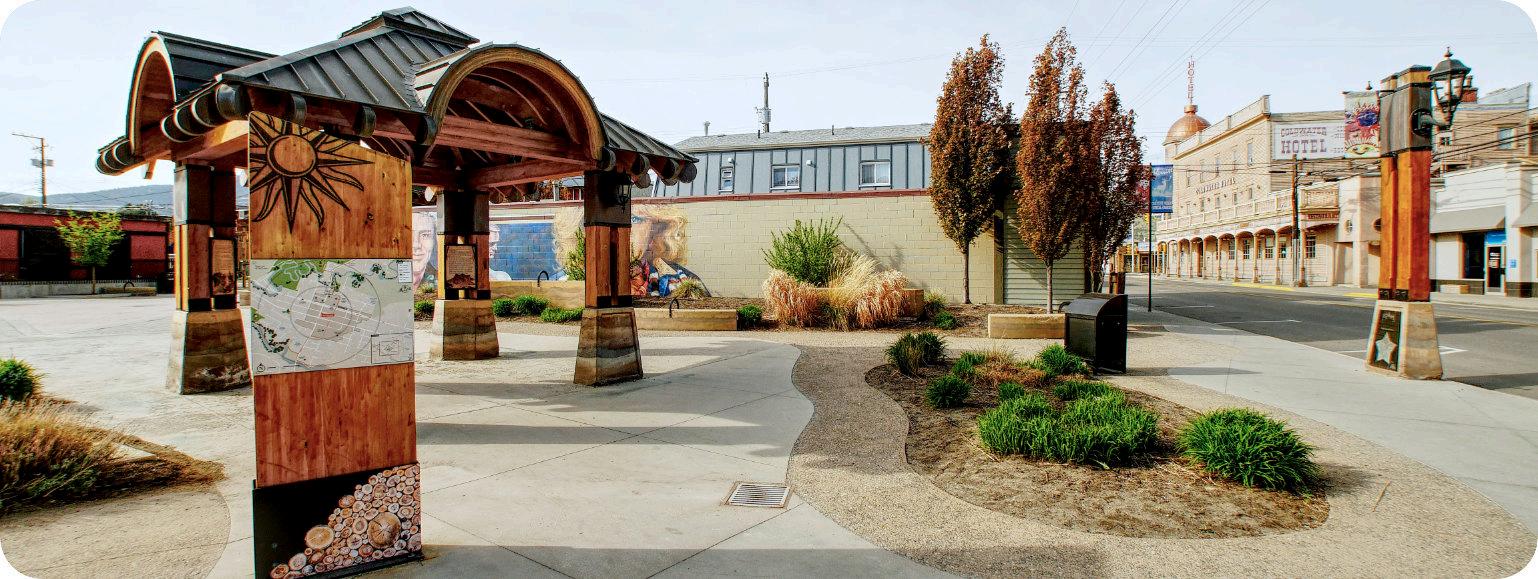
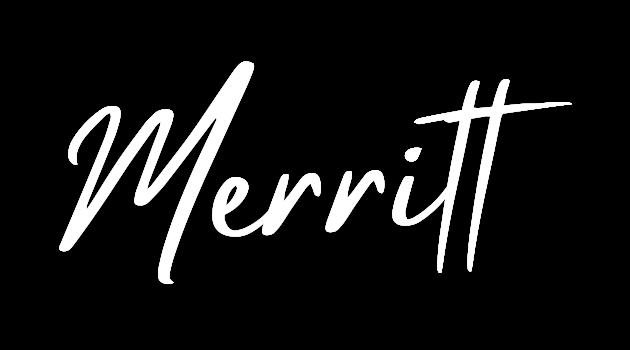
The Nicola Valley Aquatic Centre in Merritt is your go-to for swimming, fitness classes, and relaxing in the hot tub It’s affordable, close to campus, and a great way to stay active year-round www merritt ca/nvac
Merritt is surrounded by stunning nature perfect for hiking, biking, fishing, or just enjoying fresh air at places like Coldwater River and local trails When you want a change of pace, Kamloops and Kelowna are just a short drive away, offering lakes, parks, and more outdoor adventures.




Discover cozy cafes, family-owned diners, and friendly local spots in Merritt where you can grab a coffee or meet friends. For more variety, Kamloops and Kelowna offer vibrant food scenes from casual eats to trendy restaurants just a short drive away.
From public skating and hockey games at Merritt’s Memorial Arena to farmers markets and festivals in Kamloops and Kelowna, you’ll find plenty of ways to connect, have fun, and experience local culture beyond campus




When the snow falls, swap your sneakers for skis or a snowboard. The KaneValley cross country trails sit just minutes from town, while downhill action awaits at SunPeaks (near Kamloops) and BigWhite (outside Kelowna) If you’d rather stay local, grab a sled and hit the nearby hills for an old school snow day fix



Living in the Lower Mainland means you’re never far from breathtaking trails and scenic viewpoints Whether you’re trekking through Pacific Spirit Park near UBC, climbing the Grouse Grind in North Vancouver, or taking a peaceful walk at Burnaby Lake, there’s a trail for every skill level. Pack a water bottle, grab a few classmates, and go explore the natural beauty around you.
Vancouver is a melting pot of different cuisines. You can go for Mexican tacos and burritos, Asian noodles and sushi, or good ol' classic barbecue. Oh, the cafeteria on campus makes pretty neat Korean meals at good prices!





When winter hits, the fun doesn’t stop Local mountains like Grouse, Seymour, and Cypress offer easy access to skiing, snowboarding, tubing, and snowshoeing all less than an hour from the city. Even if you’re not into snow sports, cozy cafés and winter walks in the city make for a perfect cold-weather escape.
Looking for things to do between classes or on weekends? The Lower Mainland has it all beaches, markets, events, and more Whether you’re exploring Granville Island, hanging out at the beach, or catching a show downtown, there’s always something fun nearby.

Quick Picks:
Granville Island for food, art, and live shows
English Bay or White Rock for beach days
Metrotown for shopping, movies, and snacks
Seasonal Night markets
Local festivals like Fusion Fest, Italian Day, and more
GeneralInquiries
Recruitment,Admissions, andRegistrationOfficers(RAROs)
Becky Rodgers
Korben Blachford
Academic&FinancialPlanners
Crystal Henderson
Megan Calder
AdmissionsandRetention
Anna Brown
Library
Merritt
Rita Cavaliere, Director of Library Services
David Leggett, Library Coordinator
Vancouver
Emily Teh, Library Coordinator
SuccessCenter(SC)
Merritt
Lisa DeWinter, SC Manager
Deserae Gogel, SC Planner
Vancouver Marina McNeil, SC Planner
AcademicTutoringServices
AccommodationsandAccessibilitySupport
ITSupport
NVITBookstore
NVITMonthlyNewsletter
We encourage everybody to submit content - artwork, writings, announcements, etc The communications team would like to help you reach a broader audience!
Merritt
Elder Counselling
Nicola Family Health Therapy
Vancouver
Elder Counselling
LIA (Love In Action) Counselling & Consulting
Tiffany Brown, MA, CCC
1-877-682-3300
info@nvit.ca
brodgers@nvit.ca kblachford@nvit.ca
www.bit.ly/NVIT-AFP chenderson@nvitca mcalder@nvit.ca
abrown@nvit.ca
rcavaliere@nvitca dleggett@nvitca
eteh@nvitca
www.bit.ly/NVIT-SC
ldewinter@nvit.ca dgogel@nvit.ca
mmcneil@nvit.ca
www.bit.ly/NVIT-SC
www.bit.ly/NVIT-Support helpdesk@nvit.ca shop.nvit.ca
communication@nvit.ca
250-378-3350
250-378-9222
604-602-3432
778-554-0487
tiffany@lialoveinaction.ca


Internet Resources
Find research information via the internet resource Direct access to the following resources is available offcampus Since these are internet resources, URLs and content information are subject to change Please contact the library at 250-378-3302 if you encounter problems
Aboriginal Affairs and Northern Development Canada – Welcome to First Nations Profiles The First Nation Profiles is a collection of information that describes individual First Nation communities across Canada The profiles include general information on a First Nation along with more detailed information about its reserve(s), governance, federal funding, geography, registered population statistics and various Census statistics Association of Parliamentary Libraries in Canada The Association of Parliamentary Libraries in Canada (APLIC) Portal provides access to full text and/or citations to electronic legislative and government publications held in libraries of the Association of Parliamentary Libraries in Canada Portal scope is based on the collection policies and practices of individual APLIC libraries Content varies with each jurisdiction The portal is not comprehensive or exhaustive
Assembly of First Nations
Atlas of Canada Natural Resources Canada Telling Canada’s story with Maps
BC Ministries and Organizations The Government of B C is made up of ministries, agencies and Crown corporations Browse ministry, agency and Crown corporation websites for the latest news, service plans, publications and more
BNN Business News Network The centrepiece of the Network's programming is its comprehensive real time coverage of global market activity from a Canadian perspective BNN – Business News Network provides constant on screen ticker information from all major Canadian, U S and international stock markets BNN also specializes in company profiles, economic forecasting and analysis, segments on personal finance and interactive features that involve viewers BNN regularly covers important corporate announcements as they happen including news conferences, annual meetings and key trade shows BNN employs the strongest Canadian team of business anchors, reporters and analysts Many of BNN – Business News Network's on-air personalities had successful careers in business, financial planning and economics prior to entering television
Bullying Website Whether you are concerned about bullying in the workplace or want to combat bullying in schools, there are some creative and effective tactics you can use These include preventive measures to reduce the likelihood of bullying behaviour, defend against the actions of established bullies, and help to heal the scars caused by bullying.
Burnaby Public Library
Canada Revenue Agency Individuals and families, taxes, business and representatives
Canada – Department of Justice Canada’s System of Justice
Canadian Association of Social Workers Social Workers make a Difference Social work is a profession concerned with helping individuals, families, groups and communities to enhance their individual and collective well-being It aims to help people develop their skills and their ability to use their own resources and those of the community to resolve problems
Canadian Association of Social Workers Reconciliation Hub CASW has often discussed the need to have a significant connection with Aboriginal social workers, and this concern was recently highlighted by comments that the Aboriginal perspective was missing from CASW papers on women and poverty Acknowledging this lack, CASW has created the Reconciliation Hub to provide a forum for consultation with Aboriginal social workers and for obtaining their assistance in meeting the CASW strategic directions
Canadian Museum of Nature
Careers in Construction – Apprenticeship Apprenticeship is a way to learn job skills while you work and earn good wages It combines classroom study with on-the-job experience that lets you earn while you learn a skilled trade An apprenticeship program leads to professional certification as a journeyperson Child Care Canada: Childcare Resource and Research Unit The Childcare Resource and Research Unit is an early childhood education and child care (ECEC) policy research institute with a mandate to further ECEC policy and programs in Canada
First Nations Seeker Directory of North American Indigenous Portal websites Visit First Native American and Inuit Communities!
First Voices Choose a First Nation Language to hear and to speak! Government of BC Index Links to many publications of the BC Government, many of which are available full-text Others will be purchased as necessary by the NVIT library for our students
Government of Canada Departments and Agencies
Hudson's Bay Company Archives The Hudson's Bay Company Archives (HBCA), a division of the Archives of Manitoba, is home to one of Canada's national treasures - the records of the Hudson's Bay Company (HBC)
Idle no More Idle No More protests the Canadian government’s dismantling of environmental protection laws, endangering First Nations who live on the land
Inuit Tapiriit Kanatami Inuit Tapiriit Kanatami (ITK) is the national Inuit organization in Canada, representing four Inuit regions – Nunatsiavut (Labrador), Nunavik (northern Quebec), Nunavut, and the Inuvialuit Settlement Region in the Northwest Territories
Khan Academy You can learn anything! Find solutions to Math, Sciences, Humanities, Economics and Test Preparation
Merritt Public Library
Ministry of Forests, Lands and Natural Resource Operations
National Alliance for Children and Youth (NACY) The National Alliance for Children and Youth (NACY) is a nonprofit umbrella organization which brings national organizations together in a collaborative network dedicated to enhancing the well-being of children and youth in Canada
National Canadian Newspapers and News Sites Keep up with your provincial or hometown news News access
Includes Canadian newspapers from every province as well as news from around the world Journal access includes Business, Computer and Internet, Education, Environment, Health, History, Literature, Science, Sports, and Law magazines
National Museum of the American Indian Smithsonian, Washington D C
Native Courtworker and Couselling Association of BC The Native Courtworker program is a cost-shared program funded by the Ministry of Solicitor General and the Department of Justice
The NCCABC is a provincial organization with a thirty-eight year history of providing services to aboriginal peoples in conflict with the law Over fifty staff is employed, with twenty-eight of these are Courtworkers Native Law Centre of Canada The Native Law Centre at the University of Saskatchewan was founded in 1975 by Dr Roger C Carter whose commitment to Aboriginal and social justice issues convinced the University of the need for a Centre to facilitate access to legal education for Aboriginal peoples, to promote the development of the law and the legal system in Canada in ways which better accommodate the advancement of Aboriginal peoples and communities, and to disseminate information concerning Aboriginal peoples and the law Structured initially as an independent special product within the University of Saskatchewan, the Centre became a department of the College of Law in 1984
Native American Technology and Art An internet resource for indigenous ethno-technology focusing on the arts of Eastern Woodland Indian Peoples, providing historical & contemporary background with instructional how-to's & references
Native Peoples Magazine is the first and the largest, paid-circulation, consumer magazine devoted to the arts and cultures of the Indigenous peoples of the Americas Founded in 1987, it has an estimated readership of over 100,000; with subscribers (most in the U S ) and readers in 36 foreign countries U S and Canadian newsstand distribution by Coast to Coast Magazines at Barnes & Noble, Hastings, etc.
NRC Research Press Canadians can enjoy free access to over 100,000 back files of NRC Research Press journals, dating back from 2010 to 1951 The NRC Research Press journals cover a broad range of scientific disciplines and feature more than 2000 articles Journal example topics include: Earth Sciences, Fisheries, Forestry, Environment, Biology, Physiology and Nutrition These award-winning, high-impact scientific and technical journals have an international readership in more than 175 countries
Points to the Past All residents of British Columbia and Yukon enjoy barrier-free access to this collection Searchable primary source materials include maps, photographs, newspapers, manuscripts, pamphlets, poems, sermons and much more
PressReader is a web-based portal which provides anyone, from the casual reader to the formal researcher, access to over 2200 newspapers and magazines from more than 97 countries in 54 languages NOTE: You must enter your Merritt Public Library bar code
Schmoop Writing Guide Schmoop student speak has guides for not only writing but also for Algebra, Biology and even Literary Critics – check this out
SkilledTradesBC Indigenous Peoples in Trades Formerly known as Industry Trades Authority, SkilledTradesBC upholds the highest standards for training, issue credentials, support apprentices, fund programs and promote a wide range of rewarding careers in the trades We are building the most diverse and sustainable workforce in Canada by supporting equitable access to skilled trades and helping British Columbians unlock their potential creating a world-class workforce, one career journey at a time
Sociological Images Inspiring Sociologtical Imaginations Everywhere Interesting Images
Stats Canada (E-STAT) Census and other statistical data on Canada Access is automatic while at NVIT, when at home click on Estat at home, then enter your Moodle ID and password Finally, click on the "Estat" box
Tenant Resource and Advisory Centre TRAC Tenant Resource & Advisory Centre provides tenants with legal education and information about residential tenancy law through our tenant Infoline (604-255-0546 or 1-800-6651185), website, social media platforms, multilingual publications, and legal education workshops
Test Prep Review Free Online Practice Tests including ACCUPLACER, GRE, LSAT and GMAT
UBC Law Student's Legal Advice Program The LSLAP Manual is comprised of approximately 1000 pages of legal information, divided into 22 chapters The manual is easy-to-use and provides quick answers to many legal issues Originally designed as an educational resource for LSLAP students, it is now used by hundreds of organizations across British Columbia
Welcome to Early Childhood Development The ministry recognizes that young children’s early experiences and environment lay the foundation of furture health, success and well-being The early years, a period of rapid growth and development from conception until age six, are critical for a child's physical, social/emotional and cognitive development




